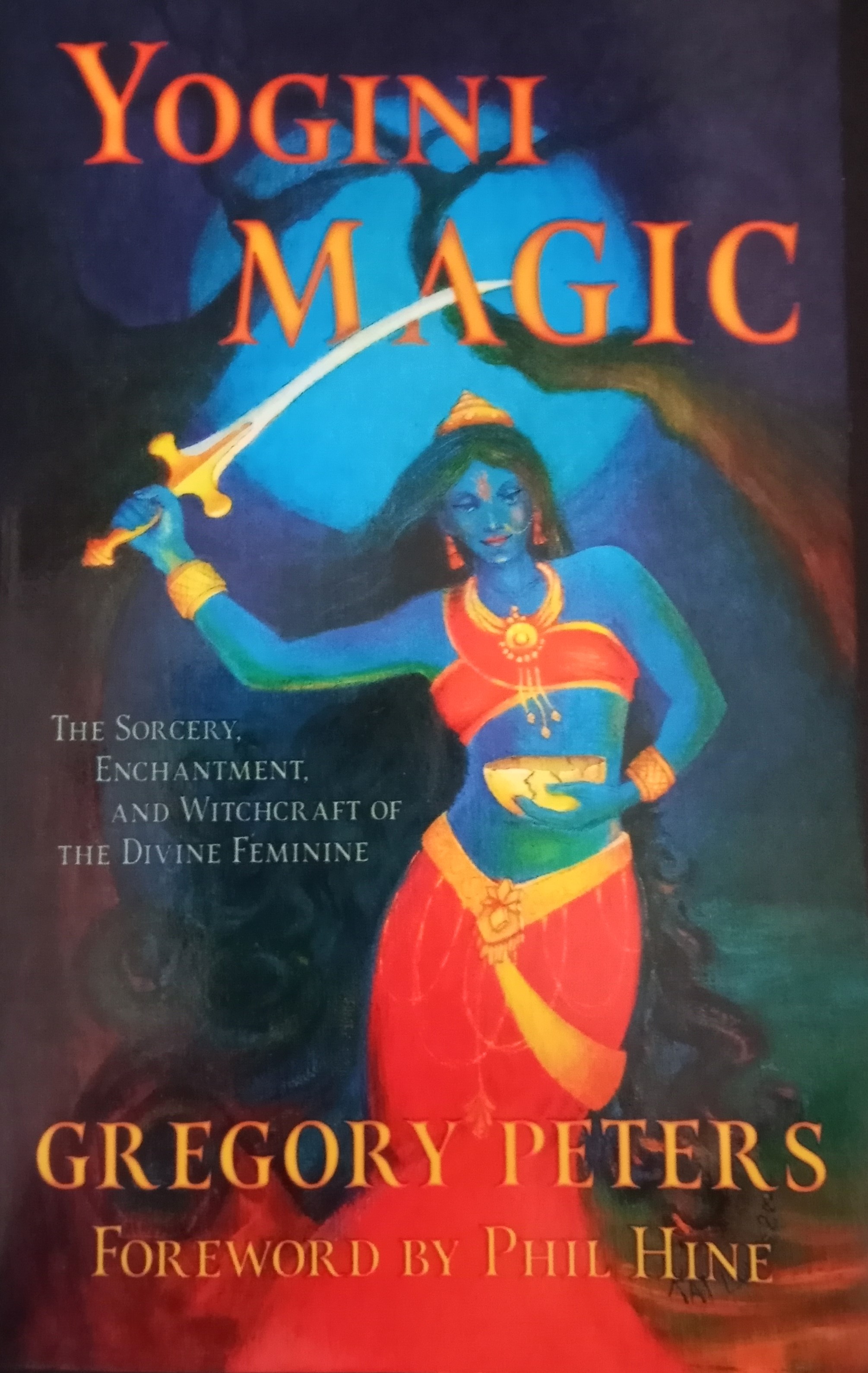Gregory Peters recently sent me a copy of his new book Yogini Magic. For those of you unfamiliar with Peters, he has for some years now written about tantra and the western esoteric traditions. He is both scholar and practitioner, being an initiate of Hindu and Buddhist tantra as well as Thelemic and western traditions. Simply put, Gregory has all the right credentials. But as we all know, it takes much more than knowledge to make a good book. Nor was I, to be quite honest, wanting to labor through another scholarly type book. Not that there is no place for that, only that I much prefer those books which serve to inspire or even enlighten – this is, after all, a spiritual path. In Yogini Magic, Peters does an excellent job of skating that thin line between feeding the soul and the mind.
Peters is also the author of The Magickal Union of East and West, which serves as practical guide to new aeonic tantra and is also well worth the read. This book clearly illustrates just how far Gregory has taken diverse traditions and made them his own as only someone with years of practical experience could, and for this reason I would recommend it to all Thelemites interested in tantric practices.
Yet, as much as I enjoyed this previous title, Yogini Magic is simply deeper, more meaningful, and dare I say, more spiritual — likely a reflection of the author’s growth. Those who know me can attest that I tend to underline passages and write notes in all my favorite books; Gregory’s latest is already well marked up. I enjoyed the author’s perspective and his ability to take fairly obscure matters and present them in a straightforward manner without losing sight of its spiritual or philosophical import.
It could be argued that Peters’ previous title was more West than East (debatable); however, if that is true, then I would argue that his new book, Yogini Magic, is clearly more East than West. In any case, in both books the author’s new aeonic spirit shines through.
One thing that struck me throughout the book was Gregory’s emphasis on the importance of Bhakti; as divergent as our paths may be, I am there in full agreement with the author. It is at these moments wherein the author is at his most lucid.
For the record, I first met Gregory at a diner in the mid-nineties; even then it was clear that he was passionate about his work. We had a mutual mentor who spoke highly of him and she wanted me to meet him. In retrospect, it is worth noting that nearly all present that day are now published authors whose names many would recognize – a story for another day. My point here is simply that Gregory and I met fairly early in our spiritual paths and that I found him to be as agreeable as I did knowledgeable. And more importantly I recognized that he was a true aspirant. Like, our teacher would say, “You don’t make Thelemites, you find them.”
Though we have never been particularly close, Gregory and I have remained in contact over the years and on more than one occasion he has aided me in my research and like many others that I have had the honor of meeting over the years, I have enjoyed reading his books. But even more so I have enjoyed watching friends and close acquaintances make that transition from aspirant to adept and I suggest that Gregory’s new book illustrates just that.
Bravo, brother!

